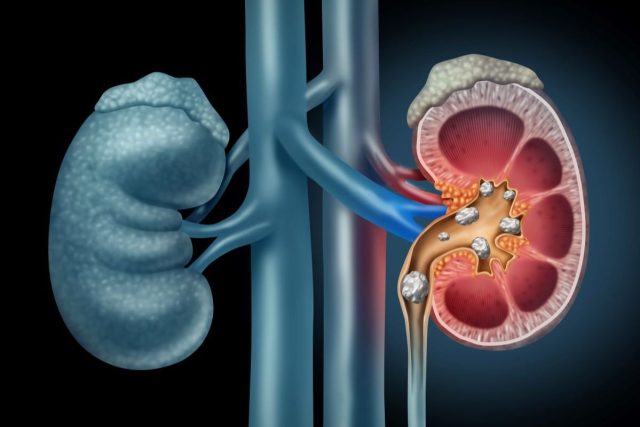Cumulative incidence of symptomatic stone event decreased with increasing calcium change after thiazide prescription
By Elana Gotkine HealthDay Reporter
WEDNESDAY, Aug. 28, 2024 (HealthDay News) — For adults with kidney stones, increasing thiazide dose is associated with greater reductions in calcium, which are negatively associated with symptomatic stone events, according to a research letter published online Aug. 22 in JAMA Network Open.
Ryan S. Hsi, M.D., from the Vanderbilt University Medical Center in Nashville, Tennessee, and colleagues quantified the association between thiazide dose and calcium reduction and correlating calcium changes with symptomatic stone events in a cohort study. Data were included for 634 adults with kidney stones who underwent initial 24-hour urine collection for stone risk assessment. Changes in calcium were assessed based on low, medium, and high thiazide doses. Participants were assigned to terciles based on the magnitude of the calcium change.
The researchers observed significant associations between higher thiazide doses and greater 24-hour mean and percentage calcium reductions (low dose: −79.3 mg/d [−18.9 percent]; medium dose: −94.1 mg/day [−25.5 percent]; high dose: −104.5 mg/day [−28.4 percent]). At four years, the adjusted cumulative incidence of a symptomatic stone event was 28.8, 19.5, and 18.0 percent, respectively, for patients in the low, medium, and high terciles of calcium change after thiazide prescription.
“For individuals prescribed thiazides for stone prevention, it may be beneficial to monitor calcium excretion and adjust dose and diet to attain an adequate reduction in urine calcium,” the authors write.
Copyright © 2024 HealthDay. All rights reserved.



















